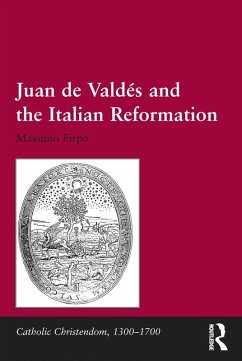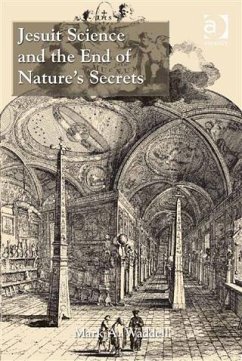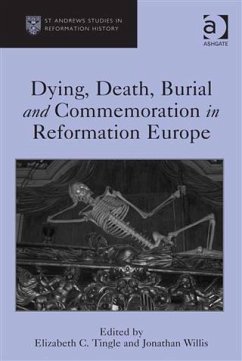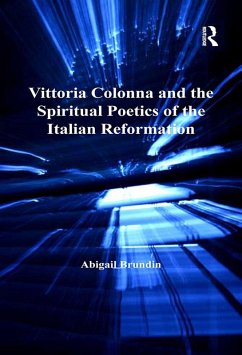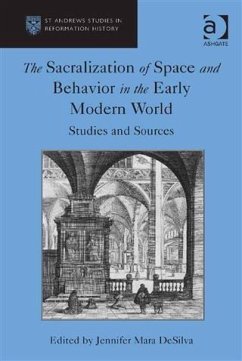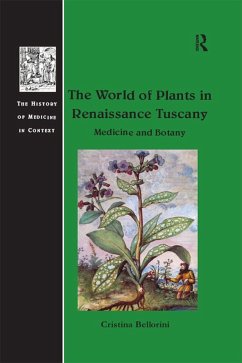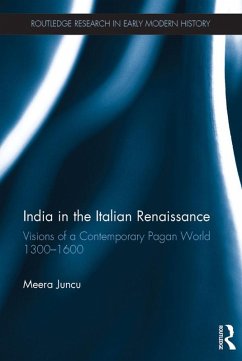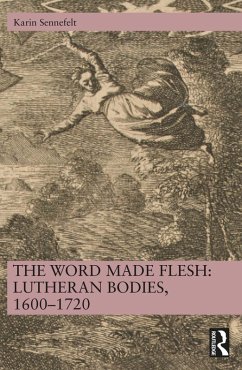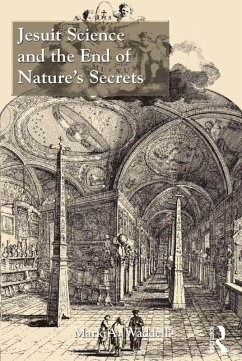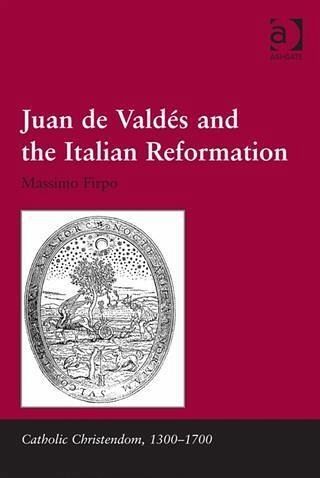
Juan de Valdes and the Italian Reformation (eBook, PDF)
Versandkostenfrei!
Sofort per Download lieferbar
92,95 €
inkl. MwSt.
Weitere Ausgaben:

PAYBACK Punkte
46 °P sammeln!
Juan de Valds played a pivotal role in the febrile atmosphere of sixteenth-century Italian religious debate. Fleeing his native Spain after the publication in 1529 of a book condemned by the Spanish Inquisition, he settled in Rome as a political agent of the emperor Charles V and then in Naples, where he was at the centre of a remarkable circle of literary and spiritual men and women involved in the religious crisis of those years, including Peter Martyr Vermigli, Marcantonio Flaminio, Bernardino Ochino and Giulia Gonzaga. Although his death in 1541 marked the end of this group, Valds writings...
Juan de Valds played a pivotal role in the febrile atmosphere of sixteenth-century Italian religious debate. Fleeing his native Spain after the publication in 1529 of a book condemned by the Spanish Inquisition, he settled in Rome as a political agent of the emperor Charles V and then in Naples, where he was at the centre of a remarkable circle of literary and spiritual men and women involved in the religious crisis of those years, including Peter Martyr Vermigli, Marcantonio Flaminio, Bernardino Ochino and Giulia Gonzaga. Although his death in 1541 marked the end of this group, Valds writings were to have a decisive role in the following two decades, when they were sponsored and diffused by important cardinals such as Reginald Pole and Giovanni Morone, both papal legates to the Council of Trent. The most famous book of the Italian Reformation, the Beneficio di Cristo, translated in many European languages, was based on Valds thought, and the Roman Inquisition was very soon convinced that he had infected the whole of Italy.In this book Massimo Firpo traces the origins of Valds religious experience in Erasmian Spain and in the movement of the alumbrados, and underlines the large influence of his teachings after his death all over Italy and beyond. In so doing he reveals the originality of the Italian Reformation and its influence in the radicalism of many religious exiles in Switzerland and Eastern Europe, with their anti-Trinitarians and finally Socinian outcomes. Based upon two extended essays originally published in Italian, this book provides a full up-dated and revised English translation that outlines a new perspective of the Italian religious history in the years of the Council of Trent, from the Sack of Rome to the triumph of the Roman Inquisition, reconstructing and rethinking it not only as a failed expansion of the Protestant Reformation, but as having its own peculiar originality. As such it will be welcomed by all scholars wishing to further their understanding of Italian spiritual reform, and its effect upon the wider currents of the Reformation.
Dieser Download kann aus rechtlichen Gründen nur mit Rechnungsadresse in A, B, BG, CY, CZ, D, DK, EW, E, FIN, F, GR, HR, H, IRL, I, LT, L, LR, M, NL, PL, P, R, S, SLO, SK ausgeliefert werden.




